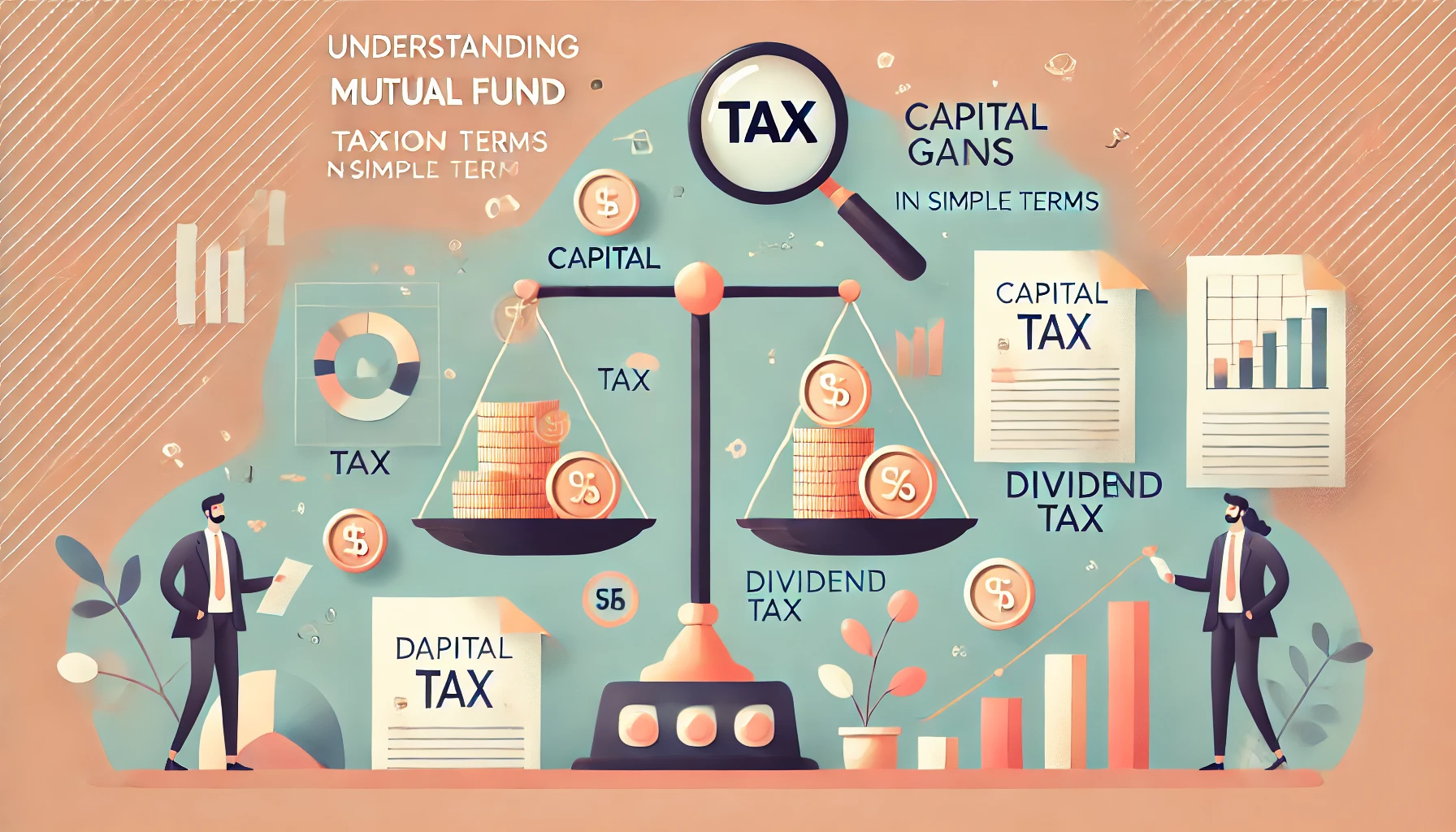If you invest in mutual funds or plan to, it’s important to know how your returns will be taxed. Just like other investments, mutual fund profits are taxable. Knowing the tax rules can help you plan better and reduce your tax burden. Let’s break it down simply.
Key Factors That Affect Mutual Fund Taxation
Mutual fund taxation depends on three main factors:
- Type of Fund: Mutual funds are categorized as equity or debt funds.
- Capital Gains: These are profits earned when you sell your mutual fund units at a higher price than what you paid.
- Dividends: Some funds distribute a portion of their profits to investors as dividends.
- Holding Period: The duration you hold your mutual fund units determines how much tax you will pay. Longer holding periods generally result in lower tax rates.
How Do You Make Profits in Mutual Funds?
You earn from mutual funds in two ways:
- Capital Gains: When you sell mutual fund units for a profit. Taxes apply only when you redeem (sell) your units.
- Dividends: These are periodic payments from the mutual fund’s earnings. Taxes apply when dividends are received.
Tax on Dividends
- Earlier, mutual fund companies paid the Dividend Distribution Tax (DDT) before giving dividends to investors.
- From April 1, 2020, DDT was removed, and now investors pay tax on dividends as per their income tax slab.
- If the dividend amount exceeds ₹5,000 in a year, 10% TDS (Tax Deducted at Source) is deducted before payment.
Tax on Capital Gains
The tax on capital gains depends on two things:
- Type of Mutual Fund (Equity or Debt)
- Holding Period (Short-Term or Long-Term)
Tax on Equity Funds (Funds with 65% or more in stocks)
- If you sell after 12 months → Long-Term Capital Gains (LTCG) are taxed at 12.5% (only if gains exceed ₹1.5 lakh).
- If you sell before 12 months → Short-Term Capital Gains (STCG) are taxed at 20%.
Tax on Debt Funds (Funds with 65% or more in bonds, fixed income instruments)
- For investments made before April 1, 2023:
- Sold before July 23, 2024 → LTCG (held for over 36 months) taxed at 20% with indexation benefit.
- Sold on or after July 23, 2024 → LTCG (held for over 24 months) taxed at 12.5%.
- For investments made after April 1, 2023, gains are taxed as per your income slab, regardless of the holding period.
Tax on Hybrid Funds (Investing 35%-65% in stocks and bonds)
- If sold before July 23, 2024 → LTCG (held for 36+ months) taxed at 20% with indexation.
- If sold on or after July 23, 2024 → LTCG (held for 24+ months) taxed at 12.5%.
Tax on ELSS (Equity-Linked Savings Scheme)
- ELSS funds come with a 3-year lock-in.
- You get tax benefits up to ₹1.5 lakh under Section 80C.
- Gains are taxed as LTCG at 12.5% after 3 years.
Tax on Gold, Silver & International Mutual Funds
- If bought before April 1, 2023:
- Sold before July 23, 2024 → LTCG (held for 36+ months) taxed at 20% with indexation.
- Sold on or after July 23, 2024 → LTCG (held for 24+ months) taxed at 12.5%.
- If bought after April 1, 2023:
- Sold before April 1, 2025 → Gains taxed as per income slab.
- Sold on or after April 1, 2025 → LTCG (held for 24+ months) taxed at 12.5%.
Tax on SIP Investments
- Each SIP installment is considered a separate investment.
- If you redeem SIP units after 12 months, LTCG tax applies.
- If LTCG is below ₹1.5 lakh, no tax is charged.
- STCG (for units held under 12 months) is taxed at 20%.
Securities Transaction Tax (STT)
- When you buy or sell equity mutual funds, STT of 0.001% is charged.
- No STT applies to debt mutual funds.
How to Declare Mutual Fund Taxes in ITR
- If you earn capital gains, you must declare them while filing your Income Tax Return (ITR).
- ITR-2 is for salaried individuals with capital gains.
- ITR-3 is for individuals with business income.
- You can use a Capital Gains Statement from platforms like ET Money to simplify tax calculations.
Final Thoughts
Mutual fund taxation depends mainly on the type of fund and the holding period. Long-term holdings generally get lower tax rates. Keeping track of tax rules can help you optimize your returns. If manual calculations seem difficult, using a capital gains report can make tax filing easier.
Ravi Chandra
Mutual Fund Distributor ARN-317654

